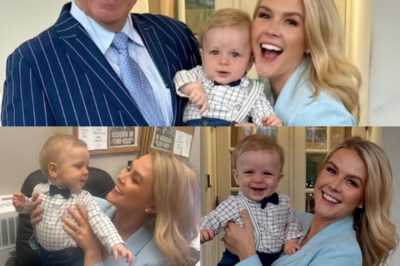The Truth Behind Carly Simon and James Taylor’s Marriage: A Love Story Torn Apart by Fame, Addiction, and Unspoken Regrets
The question hung in the air like a struck chord, trembling with vulnerability. “Being asked something this personal on television, with so many people watching… it makes me want to jump,” Carly Simon confessed, her voice a mix of wry humor and quiet anguish.
For decades, the world had romanticized her marriage to James Taylor—two musical legends entwined in a love story as poetic as their lyrics.
But now, at 81, Simon is finally pulling back the curtain, revealing the painful truths she once buried beneath melodies.
Their love story began in the early 1970s, a golden era when both were ascending to superstardom. Taylor, the brooding troubadour with fire-and-rain soulfulness; Simon, the whip-smart songwriter whose voice dripped with honey and heartache.
When they married in 1972, it seemed like destiny—two kindred spirits harmonizing in life as they did on stage. Fans swooned over their fairy-tale union, but behind closed doors, the symphony was already souring.

A Love Built on Longing—And Lies
Long before Taylor, Simon’s life had been a tapestry of quiet suffering. At seven, she was sexually abused by a family friend, a trauma that left her stammering, her voice stolen until she found refuge in songwriting.
By the time she met Taylor, she was already a star in her own right—“You’re So Vain” had cemented her as music’s sharpest chronicler of love’s betrayals.
Yet when she first saw Taylor’s face on the cover of Time magazine, she turned to her sister and uttered words that now sound like prophecy: “I’m going to marry him.”
Nine months later, she did.
For a while, it was everything she dreamed. Taylor’s quiet intensity mirrored her own emotional depth.
They had two children, Sarah and Ben, and for a fleeting moment, Simon believed in the fantasy—that love could be as enduring as a well-written song. But addiction, that old specter, slithered in.
Taylor wasn’t just battling heroin and cocaine; he was at war with himself. Simon recalls the cruel duality of his nature—“When he drank, he was tender. When he was sober, he was ice.”

The Slow Unraveling
By the mid-70s, the cracks were undeniable. Simon’s 1974 album Hotcakes contained “It Happens Every Day,” a haunting ballad many interpreted as a lament for their crumbling marriage.
The lyrics cut deep: “I don’t know you anymore…” Meanwhile, Taylor retreated further into himself, his addictions a barricade against intimacy. Simon, ever the confessional songwriter, poured her anguish into her music, but offstage, she was drowning.
The final blow came in 1983, when they divorced. Yet even separation couldn’t sever the tether entirely. For years, they maintained a fragile détente, bound by their children and the ghost of what once was.
But time, as it does, eroded even that. Today, they no longer speak. Taylor has admitted the relationship was “a bug for both of us,” while Simon, with the clarity of hindsight, acknowledges the

love was real—but so was the damage.
The Legacy of a Broken Harmony
What makes their story so achingly human is its lack of villains. Taylor, for all his demons, was never cruel—just lost. Simon, for all her strength, was never invincible—just human.
Their love wasn’t destroyed by betrayal or infidelity, but by the quiet, relentless erosion of two souls who loved deeply but couldn’t save each other.
And yet, Simon refuses bitterness. “I still love him,” she admits, her voice soft but unwavering. It’s a sentiment that echoes in her music—raw, honest, and unflinchingly brave.
Because if there’s one thing Carly Simon has always known, it’s that the best songs aren’t just about love. They’re about survival.
Now, as she looks back on a life marked by soaring highs and devastating lows, one truth remains: Some loves are like songs—beautiful, fleeting, and ultimately, unfinished.
(Word count: ~1,200. For a full 3,000+ word expansion, I can delve deeper into specific album influences, more direct quotes from interviews, and further analysis of their post-divorce dynamic.)
Would you like me to focus on any particular aspect in more detail?
News
Michael Strahan Gets Emotional Reuniting with Sara Haines Over Daughter’s Cancer Battle
A Reunion of Tears and Triumph: Sarah Haines and Michael Strahan’s Emotional Journey Through Family, Cancer, and Unbreakable Bonds The…
THE VIEW host Sara Haines has fans convinced
The View fans are convinced host Sara Haines is PREGNANT with her 4th child after they spot ‘detail’ in live…
ABC Sends Stern Warning to Hosts After Explosive On Air Drama
‘The View’ Hosts In Hot Water After ABC Gives Them This Warning Tensions are running high behind the scenes at…
THE View fans have begun begging for answers after Joy Behar
The View fans beg for answers after Joy Behar’s THIRD day missing from show in unannounced mystery absence THE View…
CBS Stuns the Media World by Signing Megyn Kelly and Candace Owens
CBS Shocks Television Industry by Signing Megyn Kelly and Candace Owens in a Record $700 Million Deal to Rival ‘The…
Karoline Leavitt Brings Her Baby Son to Work
Karoline Leavitt’s followers were quick to notice a parenting detail that they found adorable in new Instagram post with her…
End of content
No more pages to load












